| Step up your health game by adding these nutrient-dense foods to your diet.
Even if you go out of your way to eat a balanced diet, there may be some important vitamins and minerals that are slipping through the cracksand because not all vitamin deficiencies cause symptoms, you might not even know it.
This can happen for a couple of reasons: Either the vitamin or mineral in question is only found in a few foods (that you dont typically eat), or its a nutrient thats not easily absorbed by the body (say, because of health issues, medications, or age), says Suzanne Dixon, RD, registered dietitian with The Mesothelioma Center in Portland, Oregon.
With so many vitamins and minerals to check off in a day, it can be difficult to gauge which ones we need to work on mostbut there are several that are more difficult to get enough of compared to others, say experts. Heres how to pull it off.
1. Vitamin D
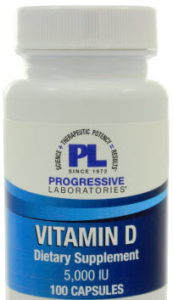 CLICK TO ORDER Vitamin D is crucial for our energy, bones, and immune system, but difficult to get enough of from foods alone, says Leah Kleinschrodt, RD, registered dietitian with Nutritional Weight & Wellness in St. Paul, Minnesota. Although our best source is exposure of bare skin to direct sunlight (sans sunscreen), this strategy can be just as tricky depending on where you liveplus, who wants to put themselves at risk for skin cancer? Add to that the uptick in people making the switch to plant-based milk, not all of which are well fortified with vitamin D, says Dixon. We also dont know how well absorbed vitamin D is from these sources, she adds.
To get enough: The average adult should try and score 600IU (international units) of vitamin D per day, according to the National Institutes of Health(NIH). Some of the top food sources of vitamin D are cod liver oil (1360IU per 1 tablespoon), swordfish (566IU per 3 ounces), cooked sockeye salmon (477IU), tuna canned in water (154IU), and fortified orange juice (137IU per 1 cup, though every brand is different). Most dairy products are fortified with vitamin D, as are some mushrooms (theyll be labeled as such). If youre not into dairy, make sure your plant-based replacements are vitamin D fortifiedand of course, taking a supplement can help fill in the gaps, says Dixon.
2. Omega-3 Fatty Acids
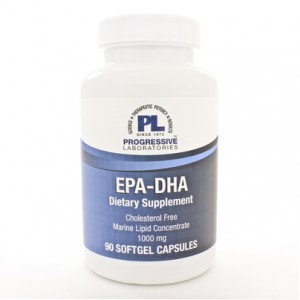 CLICK TO ORDER Omega-3s can help reduce inflammation and keep your heart and blood vessels healthy, says Kleinschrodt. What can make getting enough omega-3s tricky is that there are three different typesALA, EPA, and DHAand experts have only established recommended amounts for ALA, according to the NIH. Odds are, unless youre eating fatty fish and pasture-raised eggs every day, youre likely not consuming enough fatty acids to have a therapeutic effect, says Kleinschrodt.
To get enough: Experts have established that men should have 1.6g and women 1.1g doses of ALA daily. Fortunately, seeds and nuts have you covered in this department: 1 tbsp of whole flaxseeds offer 2.35g of ALA, chia seeds 2.5g, 3 tbsp of hemp seeds equals roughly 2.5g, and 7 english walnut halves clock in at about 1.3g. Even though recommendations for EPA and DHA are MIA (ha), The American Heart Association recommends eating at least two 3-ounce servings of fatty fish per week. To get the most bang for your buck, try incorporating more mackerel (2.5g of omega-3s per 3 ounces), lake trout (2g), wild salmon (1.8g), albacore tuna (1.5g), and herring (up to 2g) into your diet.
3. Magnesium
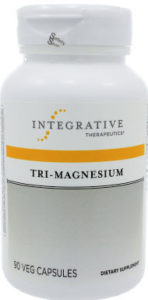 CLICK TO ORDER When it comes to minerals, magnesium is a pretty big deal: Magnesium is involved in over 300 metabolic reactions in our bodyit can help reduce anxiety and blood pressure, regulate heart rhythm, and steady blood sugar, among others, says Kleinschrodt. Its predominantly found in a variety of plant-based foods, grains, nuts, and seeds, so those people whose diets are lacking in these areas can easily end up with a magnesium deficiency.
To get enough: The NIH recommends that 19- to 30-year-old men and women should strive for 400mg and 310mg of magnesium per day, respectively, with those numbers increasing to 420mg and 320mg after 30 years of age. The top food sources of magnesium include cooked spinach and other leafy greens (over 150mg per cup), cooked brown rice (84mg), pumpkin seeds (156mg per ounce), dry roasted almonds (80mg), and dry roasted cashews (74mg).
4. Vitamin K
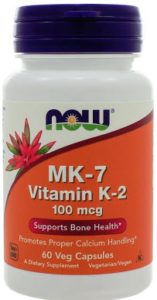 CLICK TO ORDER Vitamin K is super-important for blood clotting and healthy bones, and also plays a role in a variety of physiological functions, according to the NIH. Although full-on vitamin K deficiencies are rare, its possible to not get enough for good health and not know ityour intake might be low, but not low enough to be considered a deficiency, says Dixon. Its found in high amounts in only a few foodsmainly, leafy greens and spicesand many people dont eat enough of these foods regularly, says Dixon. To top it off, many multivitamins contain very little vitamin K, and most foods arent vitamin K fortified either.
To get enough: Its recommended that men get 120mcg and women 90mcg of vitamin K on the regular, according to the NIH. To do that, all you have to do is become one with leafy greens. Think: boiled collards (530mcg per 1/2 cup), turnip greens (426mcg), and broccoli (110mcg), raw spinach (145mcg per 1 cup) and kale (130mcg). Another tip: Make sure you have some fat with your greens, such as an oil-based dressing with your salad, which helps with vitamin K absorption, suggests Dixon.
5. Iodine
 CLICK TO ORDER The body needs iodine to make thyroid hormones, which control the bodys metabolism, according to the NIH. Because iodized salt can have a metallic taste to it that many people dont like, its understandable that many of us turn to sea salts and other salt options, says Dixon. But unfortunately, these dont provide much iodine. Plus, its only found in high quantities in a few food items that might not be in everyones dietprimarily, seaweed and dairy products (thanks to dairy processing equipment being washed and sterilized with iodine-based solutions).
To get enough: The NIH recommends that adults strive for 150mcg of iodine daily, so consider using iodized salt more often if you dont mind the taste (1/4 tsp provides roughly 71mcg of iodine). Also try adding more cod to your menu, which offers 99mcg of iodine per 3 ounces. And when it doubt, theres always dairy: low-fat plain yogurt (75mcg per cup), reduced fat milk (56mcg), even chocolate ice cream (30mcg per 1/2 cup) can all be enjoyed to improve your iodine levels. If dairys not your thing, trying a variety of seaweeds until you find a few that you like is another option: 1g of seaweed can contain anywhere from 16 to a whopping 2,984mcg of iodine.
6. Vitamin B12
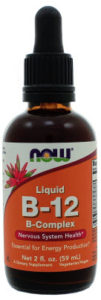 CLICK TO ORDER Vitamin B12 keeps our nerve and blood cells healthybut because you need stomach acid to absorb the vitamin and our production of stomach acid declines as we age, getting enough B12 can be a challenge. You may also come up short if you regularly take medications to treat chronic heartburn, such as proton pump inhibitors (PPIs). To date, the biggest issues with vitamin B12 deficiency are linked to PPIs, says Dixon.
To get enough: The best food sources of vitamin B12 are foods of animal origin. Theres no B12 in plants, so vegans must take a supplement, says Dixon. To hit the recommended 2.4 mcg of vitamin B12 per day, top eats include cooked clams (84.1mcg per 3 ounces) and wild rainbow trout (5.4mcg), tuna canned in water (2.5mcg), as well as dairy products like Swiss cheese (1.7mcg per 1.5 ounces), and milk (upwards of 1.4mcg per 1 cup). Also keep your eyes peeled for breakfast cereals that are fortified with B12some may contain as much as 6mcg per serving.
Dr. Keefe
If you have not set up your account at natural partners then go to npscript.com/Keefeclinic and set up an account (if a code is asked for use 6631111). There is no charge to set up this account and they do not sell email addresses. Once the account is set up you can order any of their over 9000 products in the comfort of your own home and have them shipped to your door. Note: for period of time you can get free shipping, order today! For help ordering call 888-950-2767
|
|


